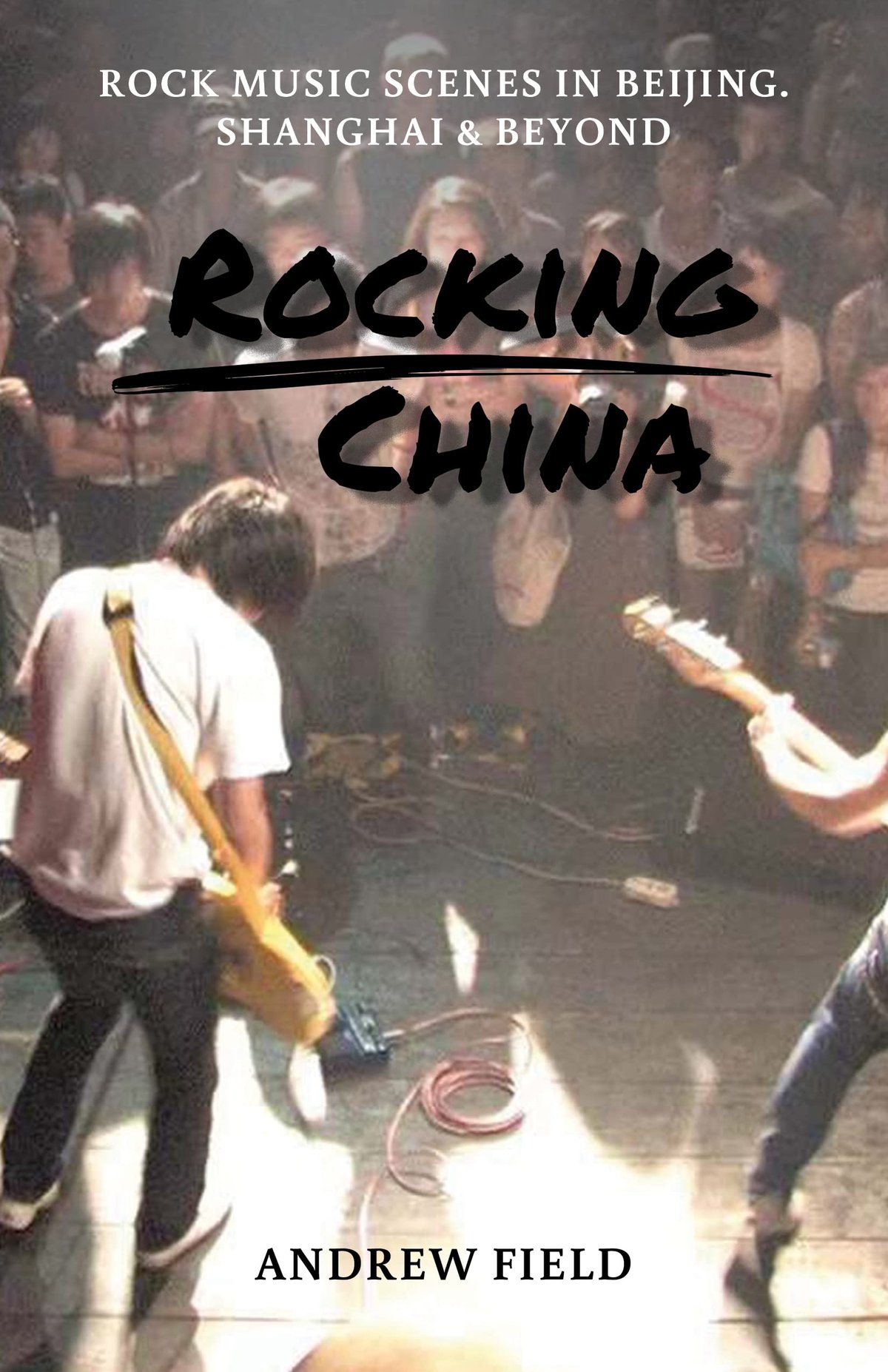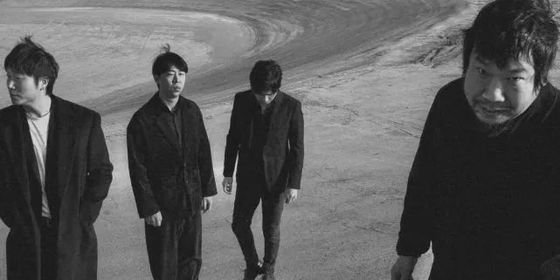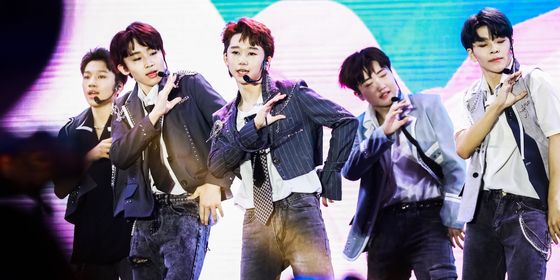In “Rocking China,” Shanghai-based historian Andrew Field looks back at a momentous period of the underground music scene in Beijing
For indie music fans in China, few sights are more evocative than Kang Mao, lead singer and co-founder of the punk band SUBS, unleashing one of her primal howls. While pop stars from East Asia are regularly featured on TV and radio, the bands playing in Beijing underground rock clubs toil to a small but incredibly dedicated group of fans.
The SUBS are not the only members of the early 2000s Beijing underground music scene featured in Andrew Field’s new book Rocking China: Rock Music Scenes in Beijing, Shanghai, & Beyond, but it was Field’s interactions with the Wuhan quartet which inspired first a film, and now a book.
A Shanghai-based historian, Field is no stranger to researching and writing about the music scene in China. His earlier works have included histories of Shanghai’s nightlife in the early 20th century and the 2012 documentary Down: Indie Rock in the PRC, co-produced with filmmaker Jud Willmont. Field’s latest book is both an update and companion to Down, featuring interviews, journal entries, and commentary not found in the film.
Rocking China is not meant to be a comprehensive history of the early 2000s music scene in the country, nor is it intended to be an academic treatise on this pivotal period in the development of rock music here. Nevertheless, Field is a worthy travel companion in the world of dive bars, punk clubs, live houses, and music festivals. He journeys by train with the SUBS to watch them play a show opening for the “godfather of Chinese rock,” Cui Jian, in Wuhan, Hubei province. One wonders if the writers of band memoirs published in the US and Europe, complaining endlessly about life touring in a van, ever considered what it would be like to get a drum kit and stage gear on and off an overbooked sleeper train in the middle of China.
While never as well-known as the stars of the Cantonese, Mandarin, and K-Pop multiverse, bands like Joyside, P.K.14, Carsick Cars, Hedgehog, Hang on the Box, and the SUBS spoke to a generation of young people, giving them a voice and a means of expressing a range of emotions from ennui to anger. As SUBS guitarist Wu Hao told Field in an interview: “I worked at a factory, and every day I would get on my bicycle and head home after work, and I’d open the door hoping that something, anything, would happen…The only thing I liked to do was to play my guitar. And hope and pray for a more interesting life.”
Field also talks to the promoters and allies of the musicians, whose hard work led to few financial rewards but made significant contributions to the development of the underground and indie music scene. These include people like Liu Kai, the manager of the Beijing indie record shop Sugar Jar; Michael Pettis, who was the driving force behind the seminal D22 Club, located just up the street from Pettis’ day job as an economics professor at Peking University; and the Maybe Mars record label. Field also interviews Yang Haisong, lead singer of the band P.K.14, who became an influential record producer and Pettis’ partner in Maybe Mars.
For the musicians themselves, dropping out of the normative path to success to pursue their rock dreams meant real sacrifice. Young people in a rapidly changing China often had to deal with the crushing weight of expectations from parents, peers, and society. As Pettis commented to Field, “If you’re into music [in China], you’re damn serious about music, because it’s not like a cool alternative. You give up your place on the treadmill…and you’re not getting back on again.”
“My dad thought that my lifestyle was very crude,” Kang Mao told Field. “He just couldn’t understand it. He thought that this was a hopeless, laughable, stupid, and even low-life way of living. He held up a chicken he was preparing for dinner [as she said this to me, she held her hand up in the air like she was holding the neck of a plucked chicken and shook it] ‘and he says to me, ‘Look at this chicken, you are both four nos.’ I ask him, ‘Why are we four nos?’ and he says back to me, ‘You see, you both have no money, no job, no family, and no future.’ And I thought, ‘Cool.’”
But what parents might consider disappointment can also be a powerful form of liberation. Field describes Kang Mao’s electrifying effect on her fans. Stalking the stage like the lost daughter of Iggy Pop and Patti Smith, Kang Mao turns every performance into a cathartic exorcism of alienation, anxiety, and angst. And despite the sacrifice and the hard work described by Field, Kang Mao was made for this life.
While the audience might still be on the treadmill every day, 9 a.m. to 9 p.m., six days a week, they could commune with their favorite bands in the evening. Packed in tiny clubs or bars, they reveled in personal liberation by proxy, if only for a few hours.
There is a challenge in writing books about musical subcultures, whether it’s Deadheads or Indie Music in China. Readers familiar with the subculture can become cranky when the author fails to mention a beloved individual, song, or band (often prefacing critiques with, “I was there, man, and…”). On the other side, those less conversant in the underground music culture of 2000s Beijing and Shanghai may find the array of groups and personalities a bit bewildering (while Field does not include a crib sheet of names, a Spotify playlist accompanies the book).
Ultimately, covering an entire subculture in a relatively short book is impossible. Field is wise for not trying. Everyone involved in the scene has their own take. Fans of this era are no doubt also eagerly anticipating the long-rumored publication of Open All the Buddha Boxes, a comic history book covering the same period being written and illustrated by Krish Raghav and Josh Feola, the latter of whom also played the drums for a time in the SUBS.
It is easy to lament the state of the indie music scene in China, but music remains—for now at least—one of the few cultural spaces open to some expression of individuality and even mild dissent. In a recent article, The Economist wrote, “China’s live music scene has evolved a lot…In spite of a crackdown on many areas of urban cultural life...there is still a sense of freedom in the music world. It may not equal the hedonism of some Western gigs, but the festivals are among the few places where rainbow flags can be waved.”
The Kids Who Rocked China is a story from our issue, “Small Town Saga.” To read the entire issue, become a subscriber and receive the full magazine.













